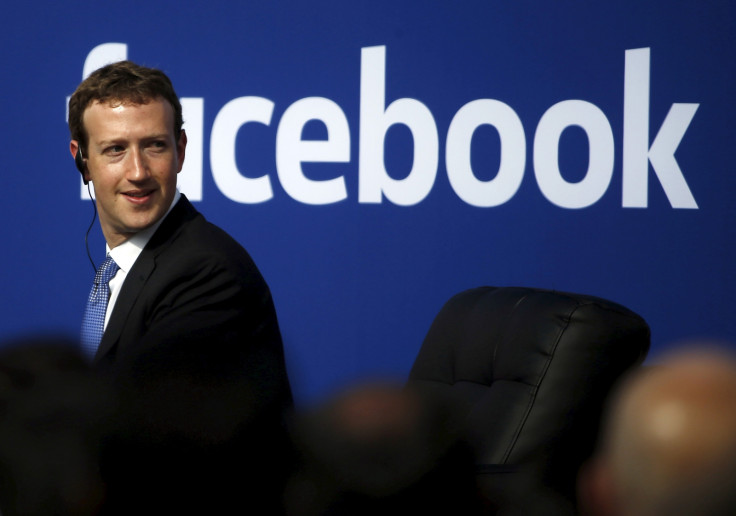Mark Zuckerberg hits back at Trump's claim that Facebook has always been 'anti-Trump'
Zuckerberg also said he regrets dismissing claims that Facebook helped influence the election as a "pretty crazy idea".

Facebook CEO Mark Zuckerberg has responded to US President Donald Trump's claim that the social media network has always been against him during the 2016 election. The president on Wednesday (27 September) accused Facebook of "collusion" on Twitter and branded the social media giant "anti-Trump" along with the New York Times and the Washington Post.
"Facebook was always anti-Trump," the president tweeted. "The Networks were always anti-Trump hence, Fake News, @nytimes (apologized) & @WaPo were anti-Trump. Collusion?"
In response to Trump's criticism, Zuckerberg defended the platform, saying he has been striving to create and maintain "a platform for all ideas".
"Every day I work to bring people together and build a community for everyone. We hope to give all people a voice and create a platform for all ideas," Zuckerberg wrote in a Facebook post. "Trump says Facebook is against him. Liberals say we helped Trump. Both sides are upset about ideas and content they don't like. That's what running a platform for all ideas looks like."
Days after the election, critics argued that the rampant spread of fake news, misinformation and hoaxes on Facebook may have helped Trump win the vote. Zuckerberg initially dismissed claims that the site helped influence the election as a "pretty crazy idea".
Now, Zuckerberg said he regrets making that statement.
"Calling that crazy was dismissive and I regret it," Zuckerberg wrote. "This is too important an issue to be dismissive." He added that data have shown that Facebook has played a big role in the election "from giving people a voice to enabling candidates to communicate directly to helping millions of people vote."
"This was the first US election where the internet was a primary way candidates communicated," he continued. "Every candidate had a Facebook page to communicate directly with tens of millions of followers every day. Campaigns spent hundreds of millions advertising online to get their messages out even further. That's 1000x more than any problematic ads we've found."
Facebook has come under recent scrutiny over its ad practices after it revealed that it sold $100,000 (£74,744) worth of politically divisive ads to inauthentic accounts likely linked to Russia. Last week, it handed over 3,000 Russia-linked ads to congressional committees investigating Russian interference in the 2016 presidential election. It was also reported that Russian operatives remotely organised anti-immigrant protests and pro-Trump rallies on Facebook during the race to the White House last year.
The social media company has vowed more transparency around its ad policies and tools. Zuckerberg also outlined a number of measures through which Facebook aims to protect the integrity of elections.
Facebook, Twitter and Google executives have been invited to testify at an open hearing on 1 November before the Senate Intelligence Committee examining how foreign entities may have used social media sites to influence last year's election.
"We will continue to work to build a community for all people," Zuckerberg wrote. "We will do our part to defend against nation states attempting to spread misinformation and subvert elections. We'll keep working to ensure the integrity of free and fair elections around the world, and to ensure our community is a platform for all ideas and force for good in democracy."
© Copyright IBTimes 2025. All rights reserved.





















